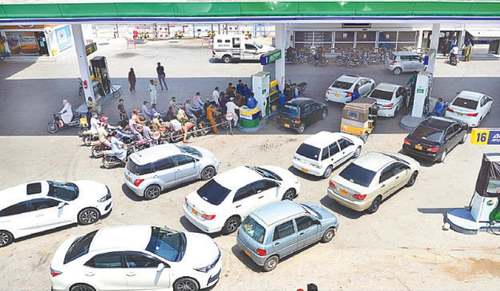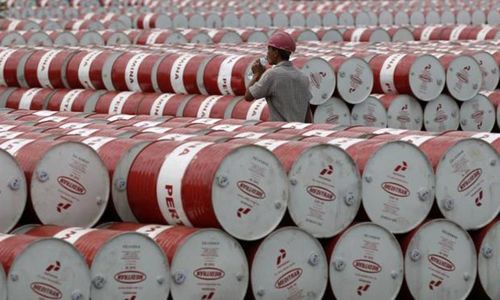Prime Minister Imran Khan on Thursday approved a hike of Rs2.31 per litre in the price of petrol, a little over one-fifth of what the Oil & Gas Regulatory Authority (Ogra) had sought, while keeping in view "relief" for the public, according to an official statement.
The premier also approved an increase of Rs1.80 per litre in the price of high-speed diesel (HSD).
The price of kerosene and light diesel oil (LDO), meanwhile, were jacked up by Rs3.36 per litre and Rs3.95, respectively.
"While considering relief for the people, Prime Minister Imran Khan approved the minimum possible increase in prices of petroleum products against Ogra's recommendations," the Prime Minsiter's Office said in a statement.
The regulatory body had sought a rise of Rs10.68 per litre in the price of petrol and Rs8.37 in diesel's price. Petrol is mostly used in private transport, small vehicles, rickshaws and two-wheelers, while the HSD is mostly used in heavy transport vehicles, trains and agricultural engines like trucks, buses, tractors, tube-wells and threshers, etc.
It had also recommended a Rs10.92 per litre increase in the price of kerosene, which is mostly used by unscrupulous elements for mixing with petrol and to some extent for lighting in very remote areas. Orga had further sought a Rs14.87 per litre hike in the price of LDO, which is consumed by flour mills and a couple of power plants.
Earlier this month, the government had increased the prices of all petroleum products by three to eight per cent for the next 16 days. On December 15, the ex-depot prices of HSD and petrol were increased by Rs3 per litre while the prices of kerosene and LDO were raised by Rs5 per litre.
The government is currently charging a standard rate of 17pc general sales tax (GST) across the board to generate additional revenues while petroleum levy is slightly lower than the maximum permissible limit. Until January last year, the government was charging 0.5pc GST on LDO, 2pc on kerosene, 8pc on petrol and 13pc on HSD.
Over the last few months, the government has been increasing petroleum levy rates instead of GST as levy remains in the federal kitty while GST goes to the divisible pool taxes and thus about 57pc share is grabbed by the provinces.
Petrol and HSD are two major products that generate most of the revenue for the government because of their massive and yet growing consumption in the country. Average petrol sales are touching 700,000 tonnes per month against the monthly consumption of around 600,000 tonnes of HSD. The sales of kerosene oil and LDO are generally less than 11,000 and 2,000 tonnes per month, respectively.
Under the revised mechanism, oil prices are revised by the government on a fortnightly basis to pass on international prices published in Platt’s Oilgram instead of the previous mechanism of monthly calculations on the basis of import cost of the Pakistan State Oil at present.














































